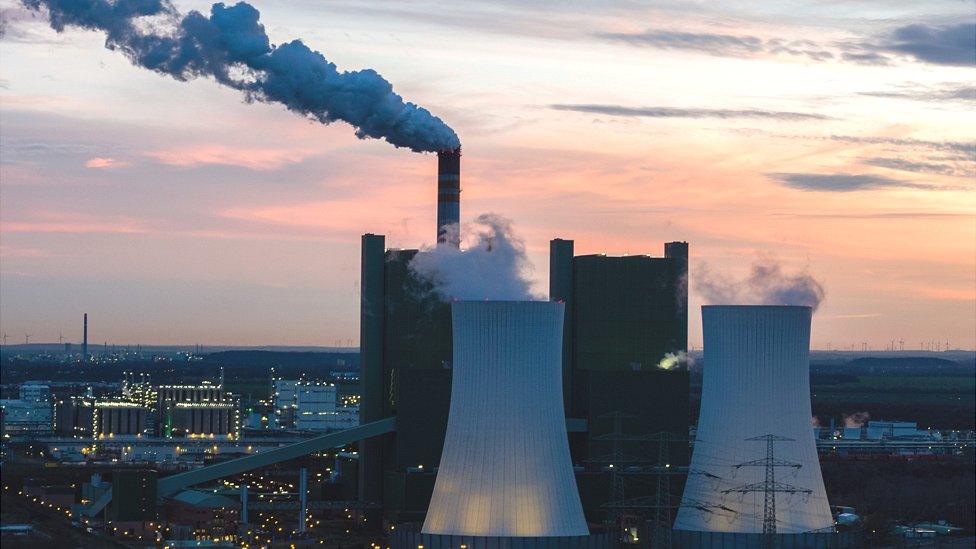German coalition plan sets bigger green targets
- Published
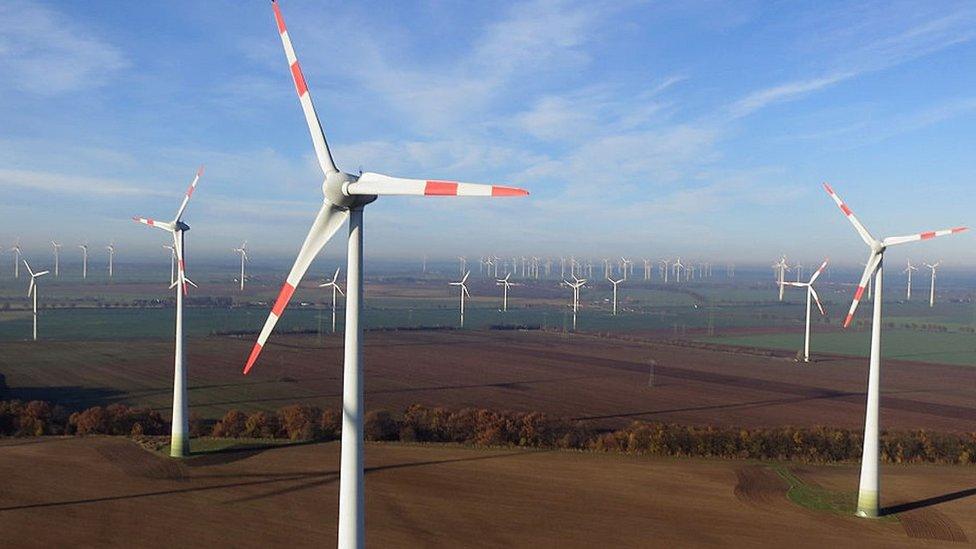
More German wind farms are coming on stream to replace coal power
Germany's centre-left Social Democrats (SPD) have agreed ambitious new green energy goals with potential coalition partners, including an earlier exit from coal power and 2% of land to be allocated for wind farms.
The joint paper with the Greens and liberal Free Democrats (FDP) paves the way for formal coalition talks.
The SPD narrowly beat Chancellor Angela Merkel's Christian Democrats in last month's elections.
Germany has long relied on coal power.
But a so-called "traffic light" coalition - the red SPD, yellow FDP and the Greens - would bring the planned exit from coal power forward by eight years, to 2030.
Germany is already phasing out nuclear power, which makes the expansion of renewable energy sources all the more pressing, in line with EU targets to drastically cut carbon emissions.
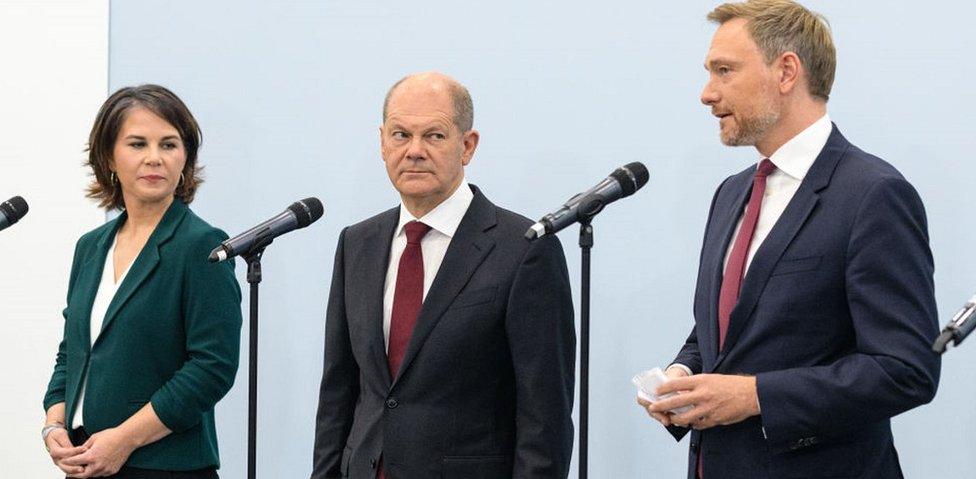
Potential coalition partners: (L-R) Annalena Baerbock (Greens); Olaf Scholz (SPD); Christian Lindner (FDP)
The SPD's Olaf Scholz - former German finance minister - is widely expected to become the new chancellor.
He said the three parties had agreed on "probably Germany's biggest industrial modernisation for more than a century".
The plan also envisages installing solar panels on all suitable roof space. It still has to get the approval of party members before formal "traffic light" coalition talks can begin.
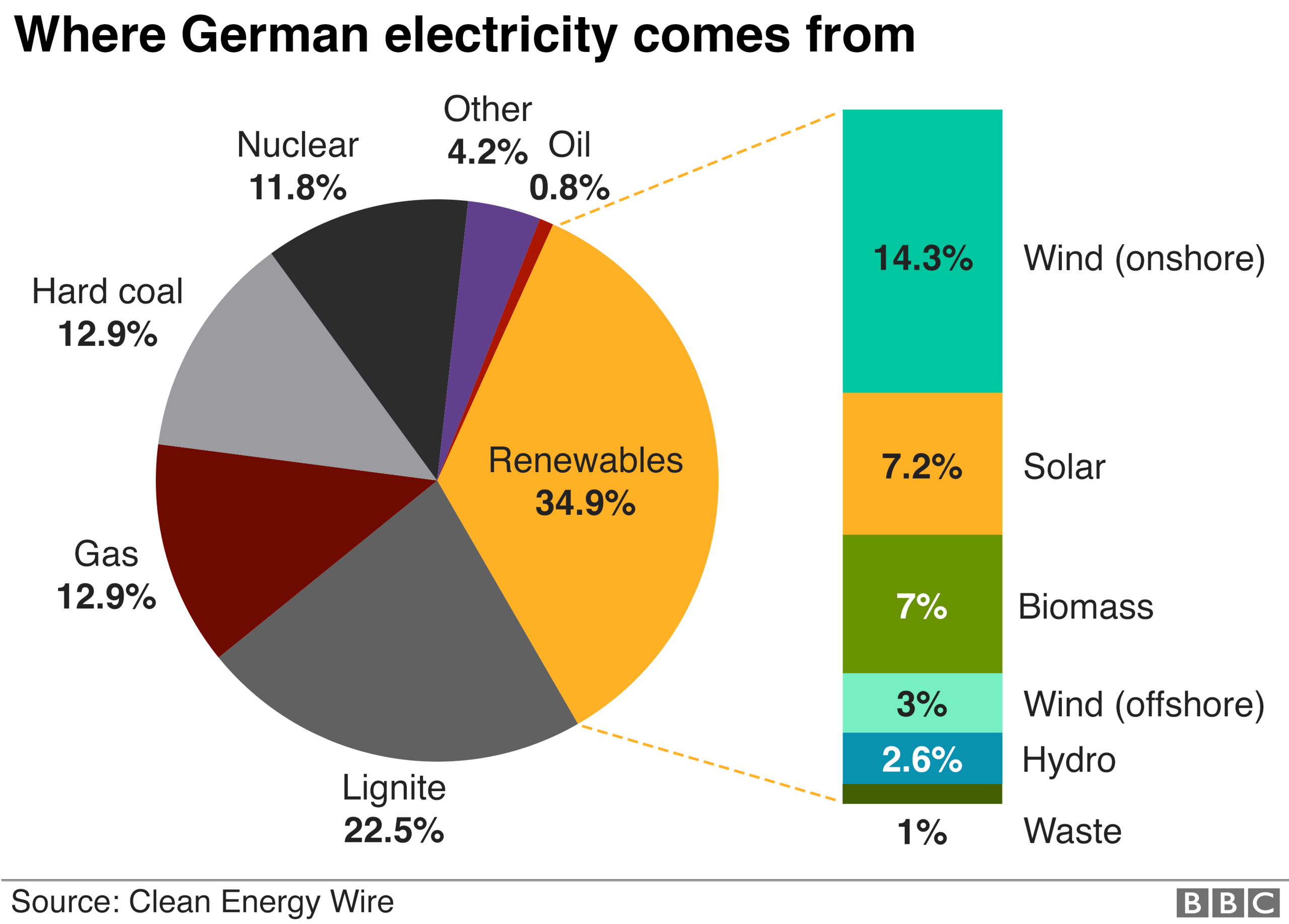

Chancellor Merkel's CDU had been hoping to lead a new coalition, but opinion polls suggest that most Germans now prefer one led by the SPD.
A "traffic light" government would also keep income tax and VAT at current levels - something the FDP insists on.
The plan calls for raising the minimum wage to €12 (£10; $14) hourly, from the current €9.5.
- Published27 September 2021
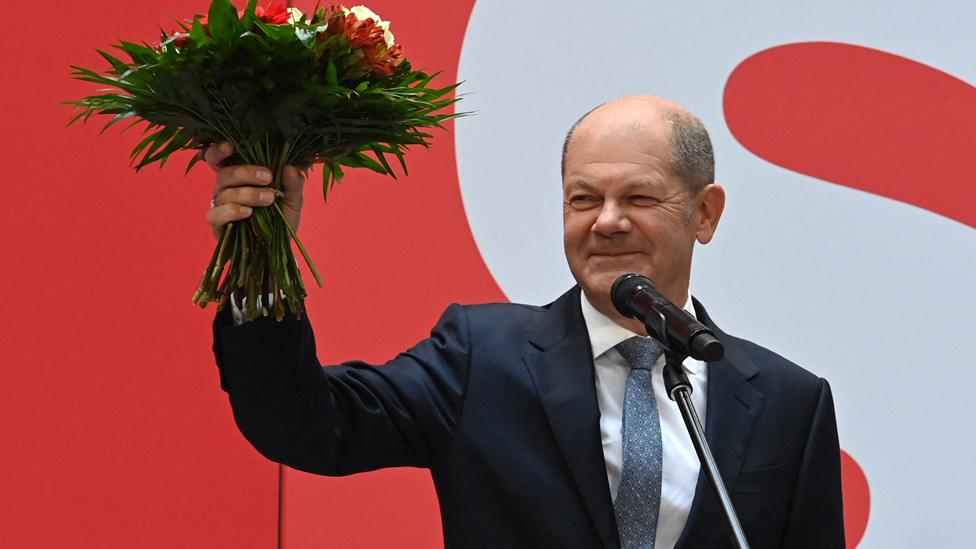
- Published8 December 2021
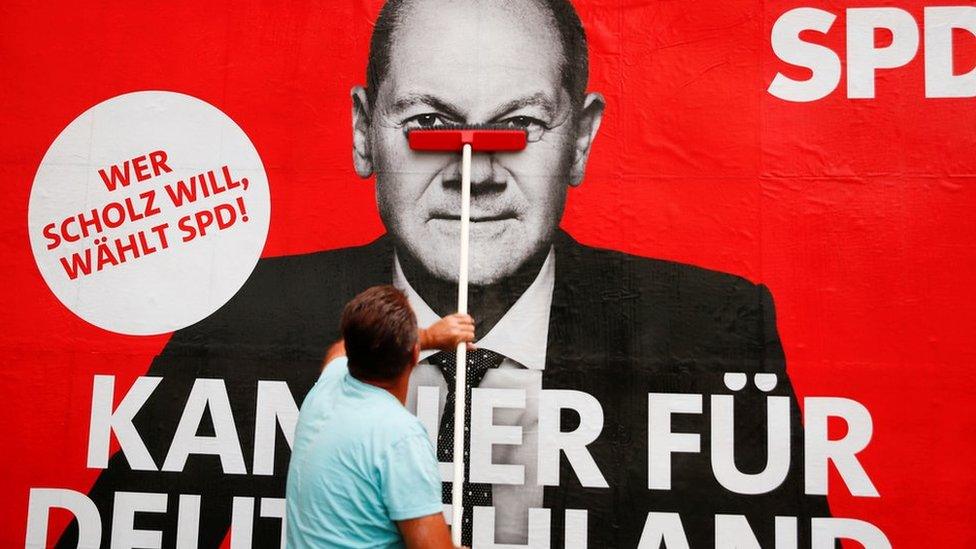
- Published16 January 2020
